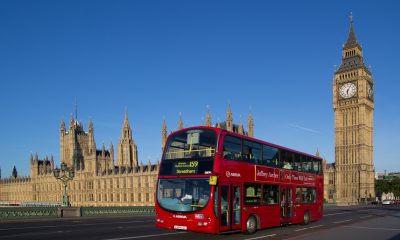World
Out in the World: LGBTQ news from Europe and Asia
Iraqi MPs passed bill that criminalizes same-sex relationships, transgender people

IRAQ
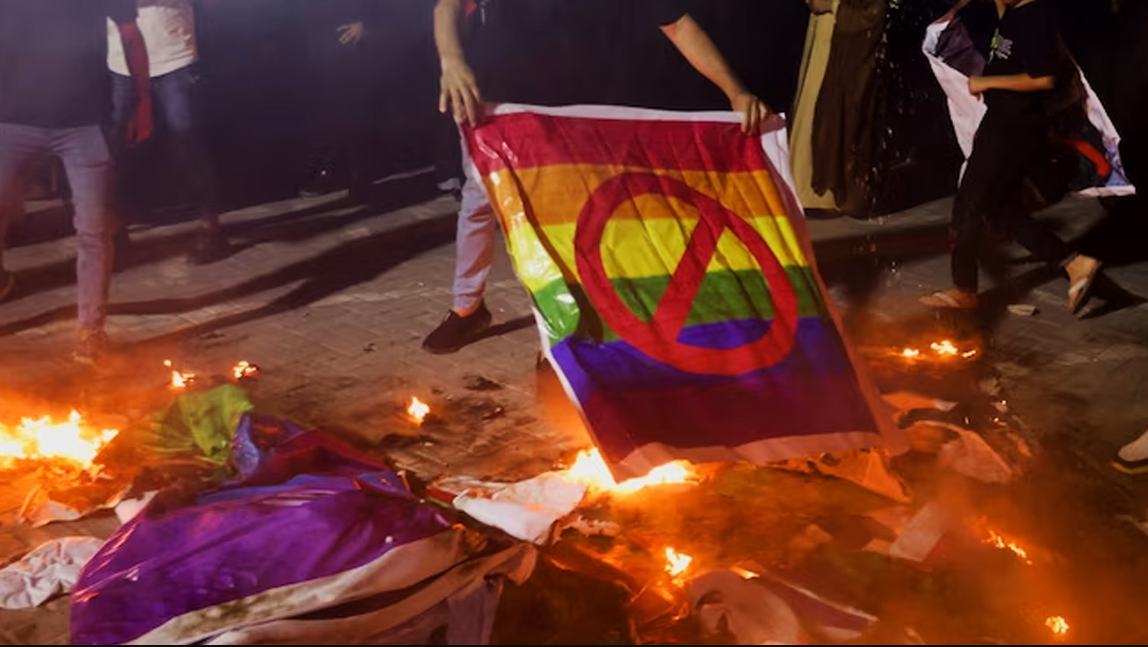
A law passed by the Iraqi parliament Saturday criminalizes same-sex relationships with a maximum 15-year prison sentence and also penalizes transgender Iraqis who face potential prison sentences ranging between one and three years under the new law.
MP Nouri al-Maliki told the AFP news agency that passage of the measure was delayed until after Prime Minister Mohamed Shia al-Sudani’s visit to Washington earlier this month. A second MP, Amir al-Maamouri, told Shafaq News that the new law was “a significant step in combating sexual deviancy given the infiltration of unique cases contradicting Islamic and societal values.”
In a statement released by State Department spokesperson Matthew Miller noted:
“The United States is deeply concerned by the Iraqi Council of Representatives’ passage of an amendment to existing legislation, officially called the Anti-Prostitution and Homosexuality Law, which threatens constitutionally protected human rights and fundamental freedoms. The law bans same-sex relations with steep fines and imprisonment and punishes those who ‘promote homosexuality.’ Limiting the rights of certain individuals in a society undermines the rights of all.
This amendment threatens those most at risk in Iraqi society. It can be used to hamper free-speech and expression and inhibit the operations of NGOs across Iraq. The legislation also weakens Iraq’s ability to diversify its economy and attract foreign investment. International business coalitions have already indicated that such discrimination in Iraq will harm business and economic growth in the country.
Respect for human rights and political and economic inclusion is essential for Iraq’s security, stability, and prosperity. This legislation is inconsistent with these values and undermines the government’s political and economic reform efforts.”
British Secretary of State David Cameron in a statement posted to X called the law “dangerous and worrying.” He added “no one should be targeted for who they are. We encourage the government of Iraq to uphold human rights and freedoms of all people without distinction.”
GERMANY

According to German media outlet Preussische Allgemeine Zeitung, a group of professional footballers from the German Football League (Deutsche Fußball Liga) will be announcing that they are gay on the International Day Against Homophobia, Biphobia and Transphobia on May 17.
PinkNewsUK reported the German outlet has quoted Marcus Urban as a source. Urban is a former footballer in Germany who came out after retiring. He was the second player worldwide to come out, only after British player Justin Fashanu in 1990. Fashanu was the only prominent player in pro English football to come out, until Jake Daniels in 2022.
Urban told Editorial Network Germany (Redaktions Netzwerk Deutschland) the move is part of an initiative in Germany in an attempt to encourage closet LGBTQ players and others working in football to come out. All clubs involved are said to have been made aware of the imminent announcement.
Urban is a co-founder of Diversero, a global community who celebrate and live diversity that he said contact with the players. Speaking about the closeted players he noted: “There is controversy there. Do I still want to wait until the world of football becomes the way I want it to be?”
COUNCIL OF EUROPE
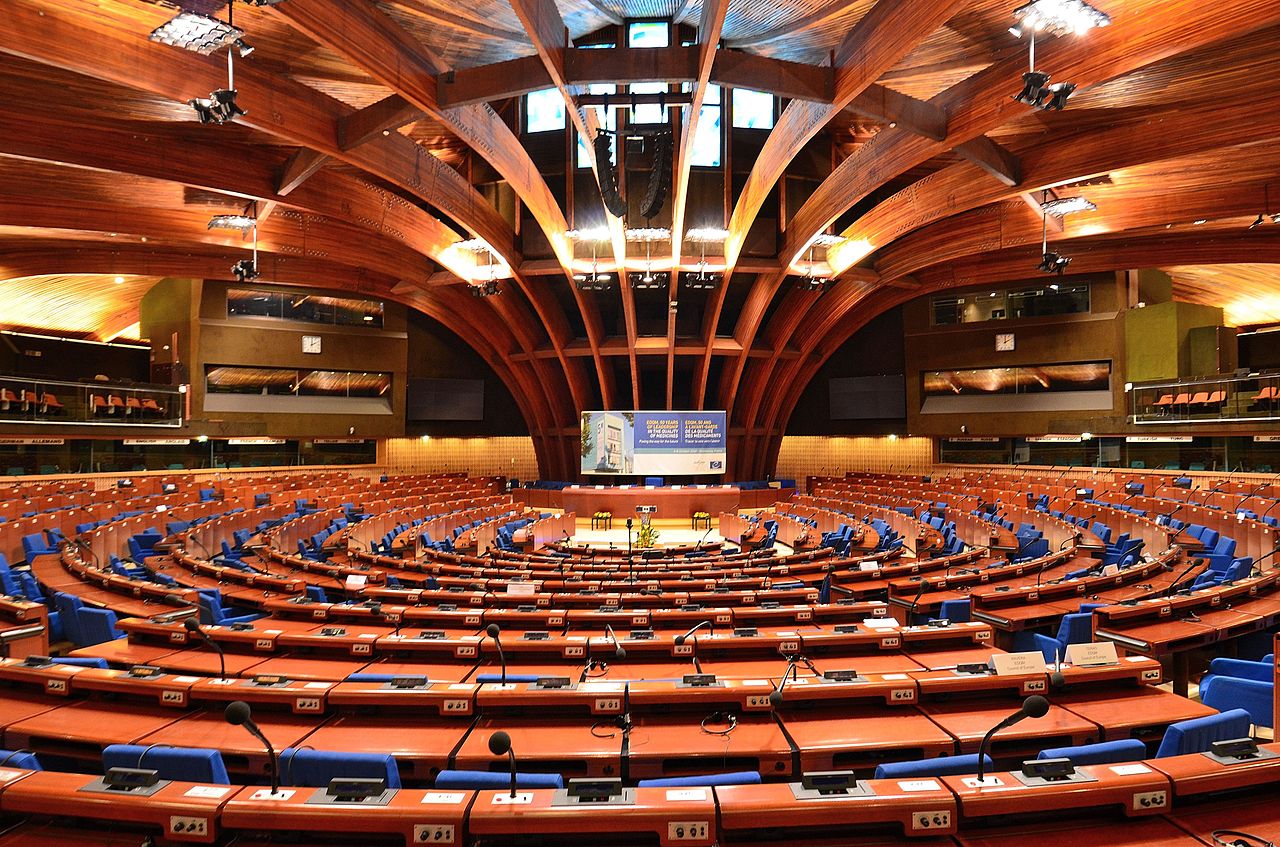
The Council of Europe’s Committee for the Prevention of Torture has issued a set of standards and recommendations to European prisons aimed at ensuring that trans prisoners, a highly vulnerable segment of the prison population, are treated with respect and protected from the risks of ill-treatment.
In its annual report for 2023, the CPT notes that it is increasingly meeting trans persons held in prisons during its visits to states to monitor the conditions of detention of persons deprived of liberty. The CPT aims to provide guidance to governments and prison administrations, considering that European countries are currently implementing divergent policies and that there is a current debate as to how to treat transgender persons in prison.
CPT President Alan Mitchell said: “Prisons are a microcosm of society, often with amplified issues given the smaller confined settings. Transgender persons held in detention can be in a situation of vulnerability and a heightened risk of intimidation and abuse. It is concerning that a few states still deny the existence of transgender persons and make no specific provision for their treatment in prison, which may expose them to ill-treatment. Governments should put in place safeguards to protect transgender persons in detention and ensure that they are treated with dignity and care.
“The report identifies as a challenge the widely divergent criteria of placement of transgender persons throughout Europe depending on individual states’ policies. Some are based on self-identification and declaration, others on legal recognition, and a few on gender-affirming surgery. Few states have specific policies and legislation to guide prison authorities on placement of transgender persons, often done on a case-by-case basis subject to an individual risk assessment.
In line with the European Court of Human Rights case law, the CPT highlights that national legislation should provide for the recognition of persons of a gender other than that assigned by birth and not establish any pre-condition to legal gender recognition such as gender-affirming surgery. Consequently, when a person self-identifies as transgender in the prison admission procedure, this should be sufficient for the prison administration to treat the person as such.
The CPT considers that transgender persons should be accommodated in the prison section corresponding to the gender with which they identify. Although there have been a few unfortunate cases of the placement in women’s prison sections of transgender persons accused or convicted of sexual offences against women, the committee highlights that, as for any other prisoners, they should only be placed elsewhere for exceptional security or other reasons after an individual risk assessment. In addition, transgender prisoners should be consulted about their placement preference during the entry procedure and be given the option to keep their gender identity confidential.
During its visits to several states, the CPT met transgender women prisoners held in male sections who stated they did not feel safe, and some alleged having been sexually abused and assaulted by other prisoners or verbally abused by staff. In some countries, the CPT also met transgender women who reported that they were often not allowed to shower at different times as male prisoners, were humiliated by being referred to by their male names or prohibited from wearing women´s clothes.
In the CPT’s view, transgender prisoners should be allowed to dress in the clothes associated with their self-identified gender and be addressed by their chosen names by prison staff. Prison administrations should also address them by their preferred names, titles and pronouns in verbal and written communication, irrespective of official documents. Further, national and prison authorities should ensure that all prison staff is trained to understand and address the specific needs of transgender persons and the risks they are exposed to in the prison environment.
The committee urges national authorities to address the risks of discrimination of transgender persons in prison and implement policies to prevent and combat ill-treatment by prison staff and inter-prison violence and intimidation targeting them. It also provides guidance to ensure that body searches of transgender persons are not perceived as degrading by the persons concerned.”
UNITED KINGDOM
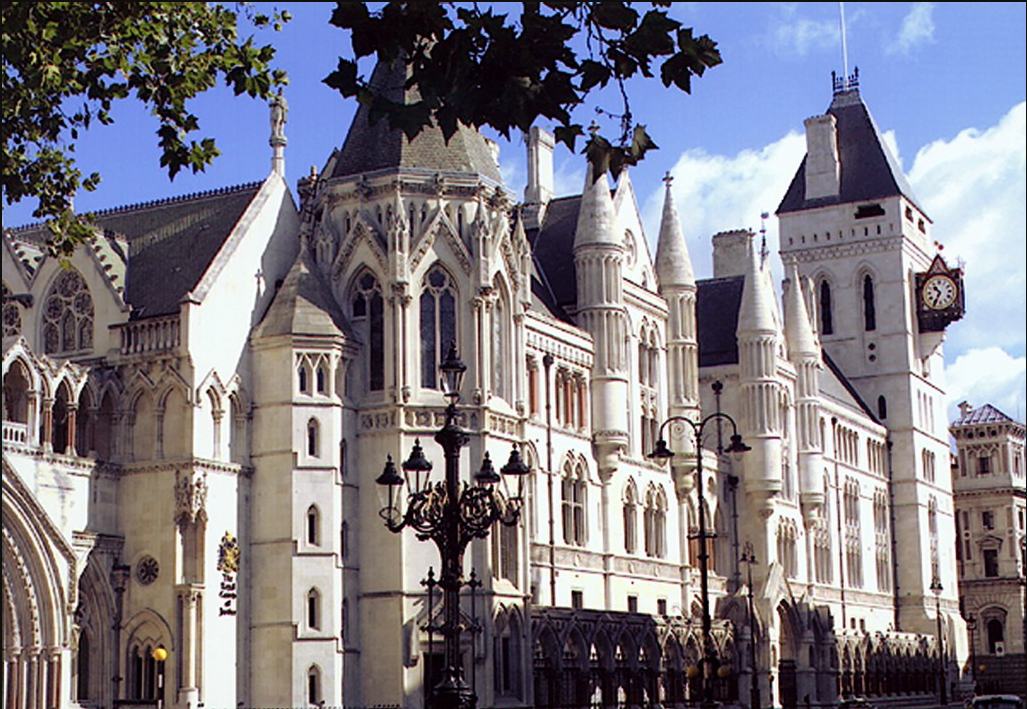
Royal Courts of Justice (Photo courtesy of the British government)
The Austen Hays Limited law firm this week launched a class action lawsuit in the High Court of Justice in London against West Hollywood, Calif.,- based Grindr, alleging that the world’s largest LGBTQ casual encounters app had violated British data protection laws.
Reuters reported that the suit claims British users’ highly sensitive information, including HIV status and the date of their latest HIV test, were provided to third parties for commercial purposes.
In a statement released to the media a spokesperson for Grindr said: “We are committed to protecting our users’ data and complying with all applicable data privacy regulations, including in the UK. We are proud of our global privacy programme and take privacy extremely seriously. We intend to respond vigorously to this claim, which appears to be based on a mischaracterisation of practices from more than four years ago, prior to early 2020.”
The Austen Hays Limited law firm’s managing director Chaya Hanoomanjee responded saying:
“Our clients have experienced significant distress over their highly sensitive and private information being shared without their consent. Many have suffered feelings of fear, embarrassment, and anxiety as a result,” Hanoomanjee said.
“Grindr owes it to the LGBTQ+ community it serves to compensate those whose data has been compromised and have suffered distress as a result, and to ensure all its users are safe while using the app, wherever they are, without fear that their data might be shared with third parties,” she added.
So far 670 people have signed up to the claim, and the firm said “thousands” more people had expressed interest in joining.
The Irish Examiner reported on Monday, April 22 that the claim against Grindr will be focused on the periods before April 3, 2018, and between May 25, 2018, and April 7, 2020, meaning newer users are unlikely to be able to join. Grindr changed its consent mechanisms in April 2020.
Grindr, based in Los Angeles, announced it would stop sharing users’ HIV status with third-party companies in April 2018 after a report by Norwegian researchers revealed data sharing with two companies.
HONG KONG
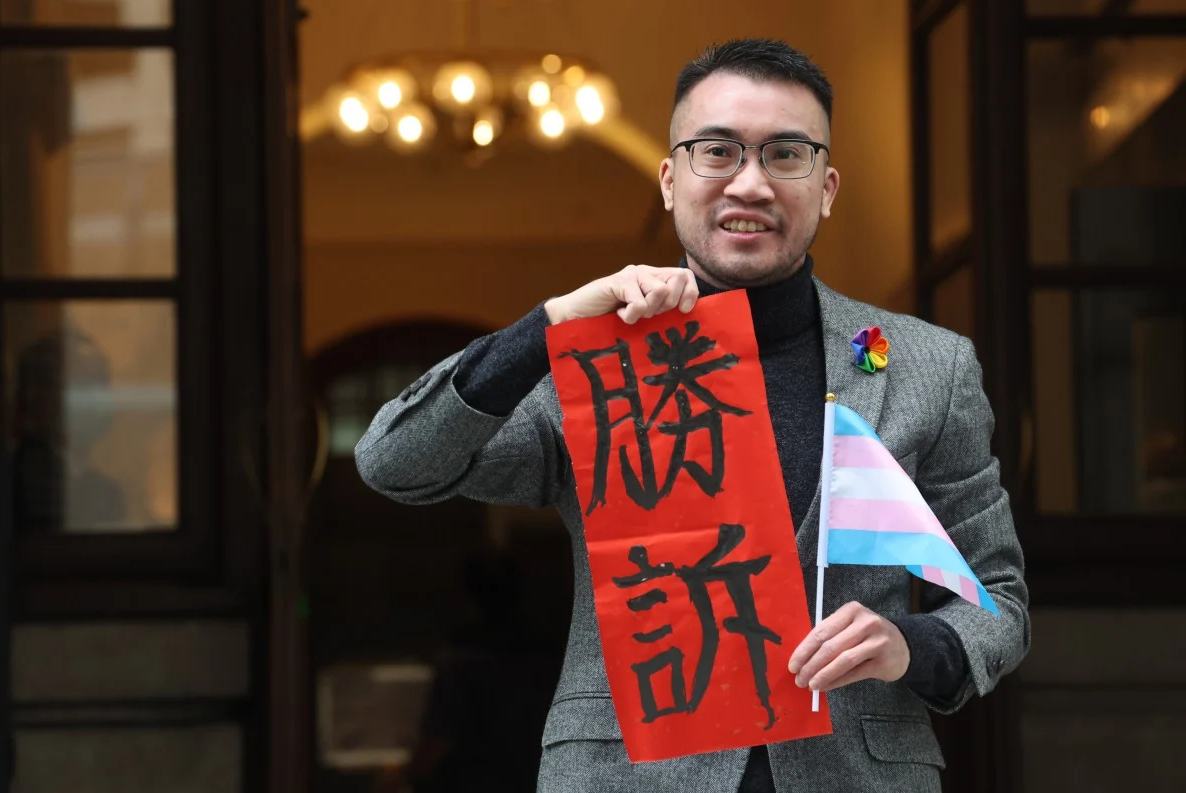
A 33-year-old trans man who has been battling authorities to change his gender from female to male on his Hong Kong ID card since he first launched legal action in 2017, and winning a verdict from the Court of Final Appeal in February 2023, has finally been able to get his new ID card this week.
In an interview with Hong Kong-based South China Morning Post journalist Lo Hoi-ying, Tse told her: “I thought to myself, I have won the lawsuit over a year ago, why do I still have to go through all of this?”
Tse, the chairman of the NGO Transgender Equality Hong Kong, also filed a separate lawsuit against the government in March for what he said was a discriminatory delay in issuing him his new ID card.
He said he would seek monetary compensation for the distress caused by the delay, which could not be forgotten even after changing his card. “Potentially in the future, if there are similar cases for the LGBTQ community, the government should not delay policy updates like this,” he said.
While Tse said that his new ID could make life easier for him and solve some surface issues, he conceded it was only a small step in the fight for trans rights, the South China Morning Post reported.
“The updated policy is not fully trans-inclusive, as measures such as submitting blood test reports for randomized checks still violate our privacy,” he said.
“There are still many hurdles for us, such as marriage. These are all issues we have to confront, which cannot be solved merely by an ID change.”
Additional reporting by Agence France-Presse, Shafaq News, Redaktions Netzwerk Deutschland, Office of Public Affairs for the Council of Europe, BBC News, PinkNewsUK, Irish Examiner, and the South China Morning Post.
Israel
Activist recalls experience in Tel Aviv after Israel-Iran war began
Marty Rouse was part of Jewish Federations of North America Pride mission

A long-time activist who was in Israel last month when its war with Iran began has returned to D.C.
Marty Rouse traveled to Israel on June 6 with the Jewish Federations of North America. The 5-day mission ended the night before the annual Tel Aviv Pride parade was scheduled to take place.
Mission participants met with Israeli President Isaac Herzog and several LGBTQ activists in Tel Aviv and Jerusalem. They visited the Western Wall, the Nova Music Festival site, and Nir Oz, a kibbutz in southern Israel that is less than a mile from the country’s border with the Gaza Strip. Mission participants also visited Sderot, a city that is roughly a mile from the Hamas-controlled enclave, a veterans rehabilitation facility, a new LGBTQ health center and the Aguda: The Association for LGBTQ Equality in Israel in Tel Aviv.
Hamas militants on Oct. 7, 2023, killed upwards of 360 partygoers and kidnapped dozens more at the music festival that was taking place at a campground near Re’im, a kibbutz that is roughly 10 miles southwest of Nir Oz. The militants killed or took hostage nearly a quarter of Nir Oz’s residents. They also took control of Sderot’s police station.

Tel Aviv Deputy Mayor Chen Arieli spoke at the mission’s closing party that took place at the Sheraton Grand, a hotel that overlooks Tel Aviv’s beachfront, on June 12.
Rouse and other mission participants planned to stay in Tel Aviv for the Pride parade, which was scheduled to take place the following day. He and Gordie Nathan, another mission participant who lives in Palm Springs, Calif., had checked into a nearby hotel that was less expensive.
“We said our farewells,” recalled Rouse when he spoke with the Washington Blade in D.C. on June 24. “We went to our hotels, and we get the warning, and then all hell broke loose.”
Israel early on June 13 launched airstrikes against Iran that targeted the country’s nuclear and military facilities.
Rouse said mission organizers told him and other participants who remained in Tel Aviv to meet at the Sheraton Grand for breakfast and dinner — Israel’s airspace was closed in anticipation of an Iranian counterattack, and authorities cancelled the Pride parade.
He said he went to bomb shelters at least twice a night for three nights.
Israel’s Home Front Command during the war typically issued warnings about 10 minutes ahead of an anticipated Iranian missile attack. Sirens then sounded 90 seconds before an expected strike.
Rouse and Nathan walked to the Sheraton Grand on June 13 when the Home Front Command issued a 10-minute warning. They reached the hotel in a couple of minutes, and staff directed them to the bomb shelter.
“You know to walk slowly, everything’s fine,” recalled Rouse. “You get 10 minutes, so everything was fine when the alarm goes off.”
Rouse described the Sheraton Grand shelter as “well lit” with WiFi, a television, and air conditioning. He was watching an Israeli television station’s live coverage of the Iranian missile attack when he saw one hit an apartment building in the Tel Aviv suburb of Ramat Gan.
A 74-year-old woman died and her boyfriend was seriously injured.
“I go over to look at the TV, just to watch,” recalled Rouse. “All of a sudden, you watch, and you see one bomb go and land and explode in Tel Aviv on TV. It landed and blew up.”
“I was like, okay, this is real, and so that was scary,” he added.
Rouse said the bomb shelter in the hotel where he and Nathan were staying after the mission ended was far less comfortable.
“It was dark. It was humid. It was hot. It was very uncomfortable,” said Rouse. “You really felt alone.”

Rouse and nearly everyone else on the mission who were in Tel Aviv when the war began left Israel on June 15. They boarded buses that took them to the Jordanian capital of Amman, which is a roughly 2 1/2-hour drive from Tel Aviv through the West Bank.
Rouse described the trip as “like a field trip” until they drove across the Jordan River and arrived at the Jordanian border crossing.
“You walk into this room, and instead of being in a well air-conditioned airport, you’re in this hot, humid, small place in the middle of the desert, packed with people, and those big, large, loud fans and pictures of military people on the walls,” he said. “It was almost like a Casablanca kind of feeling.”
Rouse said Jordanian authorities brought mission participants through customs in groups of 10. A Jewish Federations of North America liaison from Amman who previously worked as a tour guide for A Wider Bridge — a group that “advocates for justice, counters LGBTQphobia, and fights antisemitism and other forms of hatred” — went “behind closed doors” to ensure everyone was able to enter the country.
“It took a really long time,” Rouse told the Blade.

Mission participants arrived in Amman a short time later. They checked into their hotel and then had dinner at a restaurant.
“Now we feel like we’re safe and we’re in Amman,” recalled Rouse. “We’re sitting outside having a beautiful dinner.”
Iranian missiles passed over Amman shortly after Rouse and the other mission participants had begun to eat their dessert. They went inside the restaurant, and waited a few minutes before they boarded busses that brought them back to their hotel.
“No one was openly freaking out, which I was surprised by,” said Rouse.
The group was scheduled to fly from Amman to Cairo at 11 p.m. local time (4 p.m. ET) on June 16. They visited Jerash, an ancient city north of Amman, before their flight left Jordan.
“[The Jerash trip] actually took our minds off of everything,” said Rouse.
A Jewish Federations of North America contact met Rouse and the other mission participants at Cairo’s airport once their flight landed. Rouse arrived at JFK Airport in New York on June 17.
Trump-announced ceasefire ended 12-day war
President Donald Trump on June 23 announced a ceasefire that ended the 12-day war.
The U.S. three days earlier launched airstrikes that struck three Iranian nuclear sites. The ceasefire took effect hours after Iran launched missiles at a U.S. military base in Qatar.
Iran said the war killed more than 900 people in the country.
The Associated Press notes Iranian missiles killed 28 people in Israel. One of them destroyed Tel Aviv’s last gay bar on June 16.
The war took place less than two years after Oct. 7.
The Israeli government says Hamas militants on Oct. 7, 2023, killed roughly 1,200 people on that day when it launched its surprise attack on the country. The militants also kidnapped more than 200 people.
The Hamas-controlled Gaza Health Ministry says Israeli forces have killed nearly 55,000 people in the enclave since Oct. 7. Karim Khan, the International Criminal Court’s chief prosecutor, has said Israeli Prime Minister Benjamin Netanyahu and former Hamas leader Yahya Sinwar, who the IDF killed last October, are among those who have committed war crimes and crimes against humanity in Gaza and Israel.

Rouse upon his return to the U.S. said he “was never as aware of the comfort of another human being than I was during that time.” Rouse affectionately called Nathan his “bomb shelter boyfriend” and even questioned the way he reacted to the missile alerts.
“He’s sitting on the edge of the bed and he goes, okay, I’m going to put on my socks and my shoes, and I say, really? You’re going to put on your socks,” Rouse told the Blade. “The fact that I was nervous, that putting on socks might have changed the direction of our lives, to me was like I can’t believe I said that to him.”
Rouse quickly added Nathan helped him remain calm.
“If I was by myself, those nights would have been long enough,” said Rouse. “It’s a totally different feeling to be with another human that you know than to be by yourself.”

Rouse also praised the Jewish Federations of North America.
“JFNA really sprung into action and started to figure out all options to get us all safely home,” said Rouse. “It was all about logistics. Staff worked around the clock identifying and then mobilizing to get us back to the states. It was a great team effort and I know I speak for everyone in expressing our deep appreciation for their dedication to getting us safely home.”
Latin America
Protests, demands for rights define Pride month in Latin America
More than 3 million people participated in São Paulo march

Activists across Latin America marked Pride month with massive demonstrations, cultural activities, and demands that their countries guarantee equality and protect LGBTQ people from violence.
From Santiago, Chile, to Mexico City, activists took to the streets to celebrate the rights that have been won and the many that are still pending.
Chile
The Pride march that the Movement for Homosexual Integration and Liberation (Movilh) and Fundación Iguales organized took place in downtown Santiago, the country’s capital, on June 22. Authorities and the two organizations say more than 120,000 people participated.
Under the slogan “Pride with memory and hope,” marchers demanded lawmakers approve a bill that would allow reparations for LGBTQ Chileans who Gen. Augusto Pinochet’s dictatorship targeted. There were also calls for the government to promote an LGBTQ-inclusive educational reform.
“This time we are marching on high alert,” said Movilh spokesperson Javiera Zúñiga. “For the first time in decades, we are losing achieved rights. We demand the state wake up. The reform of the Zamudio Law has been stalled for 13 years.”
Marches also took place in Valparaíso, Antofagasta, Temuco, and Concepción, highlighting the growing visibility of transgender groups and feminist organizations.
Mexico
Mexico City on June 29 was the epicenter of one of the region’s largest Pride marches.
More than 300,000 people participated in the march. Comité IncluyeT organized the 46th annual march under the slogan “Not one step back: rights are respected.”
Several organizations denounced the increase in hate crimes — Mexico’s National Observatory of Hate Crimes notes more than 80 LGBTQ people have been reported murdered in the last year. They also urged Mexican lawmakers to criminalize transfeminicides across the country.
Argentina
Although Buenos Aires’s official Pride march takes place in November, the Argentine LGBT+ Federation and other groups in the Argentine capital and in other cities across the country in June organized activities.
More than 5,000 people on June 24 marched from Plaza de Mayo to the Argentine Congress to reject the government’s dismantling of public policies. President Javier Milei’s decision to eliminate the country’s Women, Gender, and Diversity Ministry and cut sexual health programs were among the moves the protesters denounced.
“Today Pride is also resistance to the adjustment,” pointed out Comunidad Homosexual Argentina, an LGBTQ advocacy group.

Colombia
Thousands of people in Bogotá, the Colombian capital, and the cities of Medellín, Cali, and Barranquilla marched on June 29.
The marchers’ slogan was “diversity is also peace,” in a context where violence against LGBTQ people remains high. Caribe Afirmativo, a Colombian LGBTQ rights group, notes more than 45 people from the community has been reported killed in the country over the last 12 months, with most of them trans women.
Organizations also demanded lawmakers resume debate of a bill that would extend comprehensive protections to LGBTQ Colombians. The measure has been stalled in Congress since 2023.
Brazil
More than 3 million people participated in the 28th São Paulo LGBTQ+ Pride Parade that took place on the city’s Paulista Avenue on June 22.
The parade took place under the slogan “LGBT+ social policies: we want the whole thing, not half of it.” Organizers demanded expanded access to health care, employment, and education for the most vulnerable communities, especially Black trans people. They also denounced ultraconservative figures who seek to curtail LGBTQ rights.
Peru and Paraguay
More than 15,000 people took part in a Pride march in Lima, the Peruvian capital, on June 28. Participants demanded lawmakers approve a trans rights law, which has been stalled in the Peruvian Congress since 2016, and recognition of civil unions.
Members of SomosGay, a Paraguayan LGBTQ rights group, and other organizations participated in a Pride march that took place in Asunción, the country’s capital, on June 29.
The march took place without incident, despite threats and anti-LGBTQ hate speech on social media. Participants demanded an end to anti-LGBTQ discrimination and rhetoric from social and religious groups.
Central America
Upwards of 2,000 people participated in a Pride march in Tegucigalpa, the Honduran capital, on June 22. A Pride demonstration took place in San Salvador, the capital of neighboring El Salvador, on June 28.
India
Anaya Bangar challenges ban on trans women in female cricket teams
Former Indian cricketer Sanjay Bangar’s daughter has received support

Anaya Bangar, the daughter of former Indian cricketer Sanjay Bangar, has partnered with the Manchester Metropolitan University Institute of Sport in the U.K. to assess her physiological profile following her gender-affirming surgery and undergoing hormone replacement therapy.
From January to March 2025, the 23-year-old underwent an eight-week research project that measured her glucose levels, oxygen uptake, muscle mass, strength, and endurance after extensive training.
The results, shared via Instagram, revealed her metrics align with those of cisgender female athletes, positioning her as eligible for women’s cricket under current scientific standards. Bangar’s findings challenge the International Cricket Council’s 2023 ban on transgender athletes in women’s cricket, prompting her to call for a science-based dialogue with the Board of Control for Cricket in India and the ICC to reform policies for trans inclusion.
“I am talking with scientific evidence in my hand,” Bangar said in an interview posted to her Instagram page. “So, I hope, this makes an impact and I will be hoping to BCCI and ICC talking with me and discussing this further.”
On Nov. 21, 2023, the ICC enacted a controversial policy barring trans women from international women’s cricket. Finalized after a board meeting in Ahmedabad, India, the regulation prohibits any trans player who has experienced male puberty from competing, irrespective of gender-affirming surgery or hormone therapy. Developed through a 9-month consultation led by the ICC’s Medical Advisory Committee, the rule aims to safeguard the “integrity, safety, and fairness” of women’s cricket but has drawn criticism for excluding athletes like Canada’s Danielle McGahey, the first trans woman to play internationally. The policy, which allows domestic boards to set their own rules, is slated for review by November 2025.
Bangar shared a document on social media verifying her participation in a physiological study at the Manchester Metropolitan University Institute of Sport, conducted from Jan. 20 to March 3, 2025, focused on cricket performance. The report confirmed that her vital metrics — including hemoglobin, blood glucose, peak power, and mean power — aligned with those of cisgender female athletes. Initially, her fasting blood glucose measured 6.1 mmol/L, slightly above the typical non-diabetic range of 4.0–5.9 mmol/L, but subsequent tests showed it normalized, reinforcing the study’s findings that her physical profile meets female athletic standards.
“I am submitting this to the BCCI and ICC, with full transparency and hope,” said Bangar. “My only intention is to start a conversation based on facts not fear. To build space, not divide it.”
In a letter to the BCCI and the ICC, Bangar emphasized her test results from the Manchester Metropolitan University study. She explained that the research aimed to assess how hormone therapy had influenced her strength, stamina, hemoglobin, glucose levels, and overall performance, benchmarked directly against cisgender female athletic standards.
Bangar’s letter to the BCCI and the ICC clarified the Manchester study was not intended as a political statement but as a catalyst for a science-driven dialogue on fairness and inclusion in cricket. She emphasized the importance of prioritizing empirical data over assumptions to shape equitable policies for trans athletes in the sport.
Bangar urged the BCCI, the world’s most influential cricket authority, to initiate a formal dialogue on trans women’s inclusion in women’s cricket, rooted in medical science, performance metrics, and ethical fairness. She called for the exploration of eligibility pathways based on sport-specific criteria, such as hemoglobin thresholds, testosterone suppression timelines, and standardized performance testing. Additionally, she advocated for collaboration with experts, athletes, and legal advisors to develop policies that balance inclusivity with competitive integrity.
“I am releasing my report and story publicly not for sympathy, but for truth. Because inclusion does not mean ignoring fairness, it means measuring it, transparently and responsibly,” said Bangar in a letter to the BCCI. “I would deeply appreciate the opportunity to meet with you or a representative of the BCCI or ICC to present my findings, discuss possible policy pathways, and work towards a future where every athlete is evaluated based on real data, not outdated perceptions.”
Before her transition, Bangar competed for Islam Gymkhana in Mumbai and Hinckley Cricket Club in the U.K., showcasing her talent in domestic cricket circuits. Her father, Sanjay Bangar, was a dependable all-rounder for the Indian national cricket team from 2001 to 2004, playing 12 test matches and 15 One Day Internationals. He later served as a batting coach for the Indian team from 2014 to 2019, contributing to its strategic development.
Cricket in India is a cultural phenomenon, commanding a fanbase of more than 1 billion, with more than 80 percent of global cricket viewership originating from the country.
The International Cricket Council, the sport’s governing body, oversees 12 full member nations and more than 90 associate members, with the U.S. recently gaining associate member status in 2019 and co-hosting the 2024 ICC Men’s T20 World Cup. The BCCI generated approximately $2.25 billion in revenue in the 2023–24 financial year, primarily from the Indian Premier League, bilateral series, and ICC revenue sharing. The ICC earns over $3 billion from media rights in India alone for the 2024–27 cycle, contributing nearly 90 percent of its global media rights revenue, with the BCCI receiving 38.5 percent of the ICC’s annual earnings, approximately $231 million per year.
Women’s cricket in India enjoys a growing fanbase, with over 300 million viewers for the Women’s Premier League in 2024, making it a significant driver of the sport’s global popularity. The International Cricket Council oversees women’s cricket in 12 full member nations and over 90 associate members, with the U.S. fielding a women’s team since gaining associate status in 2019 and competing in ICC events like the 2024 Women’s T20 World Cup qualifiers. The BCCI invests heavily in women’s cricket, allocating approximately $60 million annually to the WPL and domestic programs in 2024–25, while contributing to the ICC’s $20 million budget for women’s cricket development globally. India’s media market for women’s cricket, including WPL broadcasting rights, generated $120 million in 2024, accounting for over 50 percent of the ICC’s women’s cricket media revenue.
“As a woman, I feel when someone says that they are women, then they are, be trans or cis. A trans woman is definitely the same as a cis woman emotionally and in vitals, and specially, when someone is on hormone replacement therapy. Stopping Anaya Bangar from playing is discrimination and violation of her rights. It is really sad and painful that every trans woman need to fight and prove their identity everywhere,” said Indrani Chakraborty, an LGBTQ rights activist and a mother of a trans woman. “If ICC and BCCI is stopping her from playing for being transgender, then I will say this to be their lack of awareness and of course the social mindsets which deny acceptance.”
Chakraborty told the Blade that Bangar is an asset, no matter what. She said that the women’s cricket team will only benefit by participation, but the discriminating policies are the hindrance.
“Actually the transgender community face such discrimination in every sphere. In spite of being potent, they face rejection. This is highly inhuman. These attitudes is regressive and will never let to prosper. Are we really in 2025?,” said Chakraborty. “We, our mindset and the society are the issues. We, as a whole, need to get aware and have to come together for getting justice for Anaya. If today, we remain silent, the entire community will be oppressed. Proper knowledge of gender issues need to be understood.”
The BCCI and the International Cricket Council have not responded to the Blade’s repeated requests for comment.
-

 U.S. Supreme Court2 days ago
U.S. Supreme Court2 days agoSupreme Court to consider bans on trans athletes in school sports
-

 Out & About2 days ago
Out & About2 days agoCelebrate the Fourth of July the gay way!
-

 Virginia2 days ago
Virginia2 days agoVa. court allows conversion therapy despite law banning it
-

 Maryland5 days ago
Maryland5 days agoLGBTQ suicide prevention hotline option is going away. Here’s where else to go in Md.



